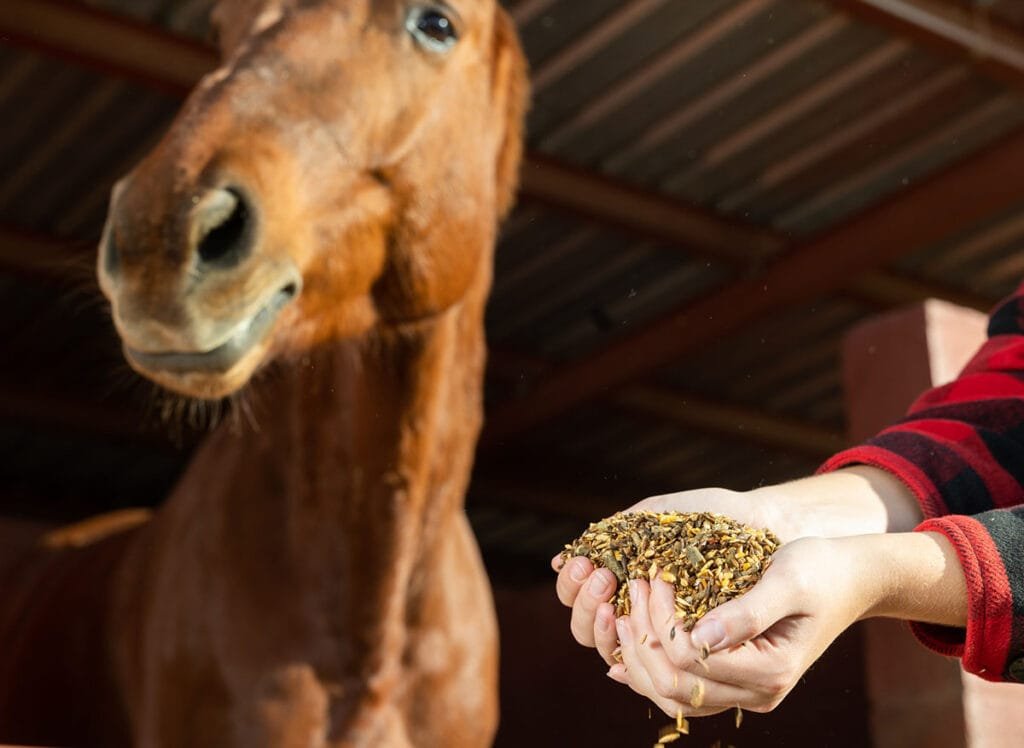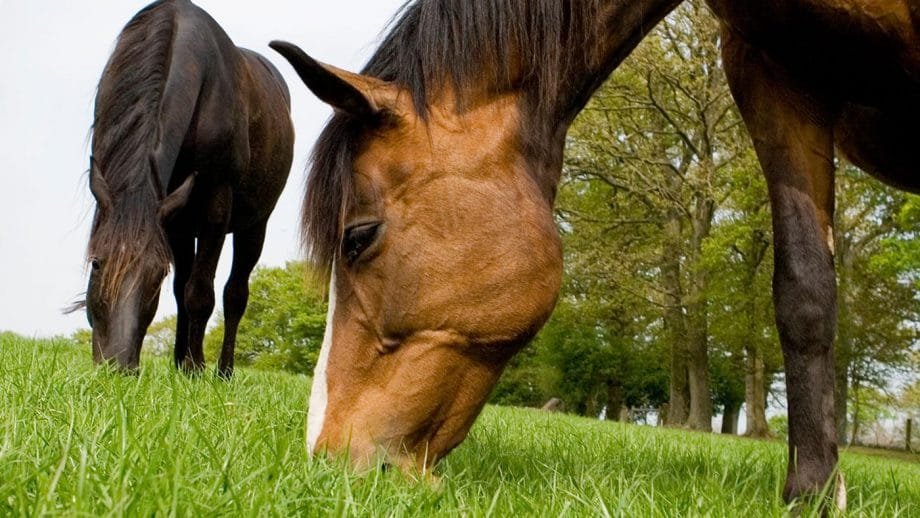Changing horse’s feed is a significant decision that can impact their health and performance
Whether you’re switching due to a new nutritional need, a change in activity level, or simply to provide a better-quality feed, making the transition safely is essential. Here are three easy tips to help you navigate the process without causing stress or digestive upset for your horse.
1. Gradual Transition
One of the most important steps in changing your horse’s feed is to do it gradually. Horses have sensitive digestive systems, and a sudden change in diet can lead to digestive issues such as colic, diarrhea, or a decrease in appetite. To minimize these risks, a gradual transition allows your horse’s digestive tract to adjust to the new feed gradually.
How to Implement a Gradual Transition:
- Start Slowly: Begin by mixing a small amount of the new feed with the old feed. For example, if you are transitioning to a new grain mix, start by offering a mixture that is 25% new feed and 75% old feed.
- Increase Gradually: Over the next 7 to 10 days, gradually increase the proportion of the new feed while decreasing the old feed. A common approach is to increase the new feed by 25% every few days until you reach 100% new feed.
- Observe Your Horse: Monitor your horse closely during this period. Look for signs of digestive upset such as changes in manure consistency, a decrease in appetite, or any signs of colic. If you notice any negative reactions, slow down the transition or consult your veterinarian.
2. Monitor Health and Behavior
During the feed transition period, paying close attention to your horse’s overall health and behavior is crucial. Changes in diet can affect not only your horse’s digestive system but also their energy levels, coat condition, and behavior. Regular monitoring can help you identify any issues early and make adjustments as needed.
What to Monitor:
- Digestive Health: Check your horse’s manure daily. Changes in consistency or frequency can indicate digestive issues. Firm, well-formed manure is a good sign that your horse’s digestive system is adapting well to the new feed.
- Appetite and Weight: Ensure that your horse maintains a healthy appetite and continues to eat the new feed. Also, monitor their weight and body condition. Significant changes in weight can be a sign that the new feed is not meeting their nutritional needs.
- Behavior: Observe any changes in behavior, such as lethargy, irritability, or unusual cravings. Such changes can indicate that your horse is not adjusting well to the new feed. If you notice any behavioral changes, consult with your veterinarian to ensure there are no underlying issues.

3. Consistent Feeding Practices
Consistency in feeding practices helps your horse adjust more smoothly to the new feed. This involves not only the gradual transition process but also maintaining a stable feeding routine and environment.
Key Consistent Practices:
- Regular Feeding Schedule: Feed your horse at the same times each day to maintain routine and predictability. Horses thrive on routine, and consistency helps reduce stress related to feeding changes.
- Stable Feeding Environment: Ensure that the feeding area is calm and free from distractions or stressors. A quiet, familiar environment can help your horse feel more comfortable and focused on their new feed.
- Proper Feed Storage: Store feed in a dry, cool place to prevent spoilage and contamination. Always check the feed for signs of mold or pests before offering it to your horse. High-quality, fresh feed supports better digestion and overall health.
Additional Tips for a Smooth Transition:
- Consult Your Veterinarian: Before making any changes to your horse’s diet, it’s always a good idea to consult with your veterinarian. They can provide guidance based on your horse’s specific health needs and dietary requirements.
- Check Feed Labels: Understand the nutritional content of both the old and new feeds. Ensure that the new feed meets your horse’s dietary needs and provides balanced nutrition.
- Hydration: Always provide access to fresh, clean water. Proper hydration is crucial for digestion and helps prevent issues like colic during feed transitions.
Remember, every horse is unique, and what works for one may not work for another. Pay attention to your horse’s individual needs and make adjustments as necessary to keep them healthy and happy.




